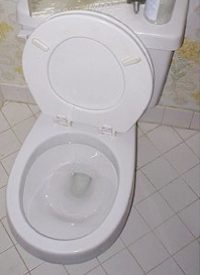
One of the defining aspects of the Tea Party’s victories on Election Day was a renewed call for decreased government control over all aspects of Americans’ lives: what they eat, how theiy spend and save money, and what technologies they can use in the service of commerce and a more modern, pleasurable lifestyle. While one of the hallmarks of the progressive agenda is to strengthen the regulatory arm of government by imposing its reach on all aspects of citizens’ everyday lives, under such euphemistic banners as “net neutrality,” “public health,” and “sustainable development,” constitutionalists understand the fundamental truth that these are mere sublimated efforts to extend the regulatory reach of the progressive state into all aspects of everyday life.
Those who are committed to the principles of limited government, personal freedom, and the free market are well represented in the ranks of the Tea Party, which seems to be characterized by a political ideology that combines constitutionalism and libertarianism along with the principles of Austrian economics. To date, the best proponent of this intellectual tradition has been Senator Rand Paul (R- Ky.), who has emerged as the voice and consciousness of a new generation of politically-active and well-informed conservatives. Senator Paul has been one of the leading proponents in the past several months of the push to crack down on the regulatory state and its attempts to decrease individual choice in areas such as the media, consumer autonomy, food and nutrition, energy, appliances, and other areas of personal consumer freedom.
One of the most revealing, yet seemingly ridiculous examples of government’s regulatory overreach, which was the subject of a recent highly-popular and well-circulated video involving Senator Paul, is the federal environmental and efficiency requirements involving toilet bowls. In a hearing last week involving the Senate Committee on Energy and Natural Resources, Paul lambasted Kathleen Hogan, Deputy Assistant Secretary for Energy Efficiency in the Office of Energy Efficiency and Renewable Energy (EERE) at the Energy Department, on the fact that her position entails propagating failed and intrusive government restrictions on consumers.
Hogan oversees a more than $900 million annual energy efficiency policy, program, and research portfolio including industrial, buildings, and vehicle technologies, along with federal energy management. She also oversees the plundering of over $16.8 billion in taxpayer funding, under the provisions of the Keynesian stimulus package, otherwise known as the American Recovery and Reinvestment Act.
In the time Senator Paul was allotted to question Hogan, he articulated in potent terms the fundamental principles of the free market outlined by anti-regulation and pro-freedom economists such as Milton Friedman. Paul told her that the Energy Department’s “hypocrisy” and “busybody nature” has “restricted choices” for consumers rather than made life better for them.
“You don’t care about the consumer, really,” Sen. Paul observed. “Frankly, my toilets don’t work in my house, and I blame you.”
The hearings were not about federal restrictions on toilet water capacity, but instead were convened to deal with the issue of federal appliance regulation (such as the Energy Star program) — specifically two proposed bills: one that would update energy efficiency standards for appliances and a second that would repeal a 2007 measure to phase in new efficiency standards for light bulbs beginning next year.
Hogan herself is an embodiment of federal bureaucracy, having previously been an EPA official for several years. She held a leadership role in developing and enforcing the oppressive and economically ill-advised appliance efficiency program, having served for more than 10 years as the EPA Division Director responsible for the development and operation of its clean energy programs focused on removing market barriers for energy efficiency and renewable energy. These programs included the Energy Star program, as well as plans for combined heat and power and renewable energy, corporate leadership, and state clean energy policies. Under her management, Energy Star grew to a national brand for energy efficiency across products, new homes, and buildings. She was also a key convener of the National Action Plan for Energy Efficiency.
Just as federal toilet bowl efficiency programs are not economically viable, neither is the Energy Star program. Greg Kutz, director of the Government Accountability Office’s Special Investigations unit, found that much of the Energy Star program is wasteful and marred by corruption (typical of any of a host of government bureaucracies) and discovered that manufacturers frequently exploit the program. Kutz launched a sting operation which revealed that four fraudulent manufacturing companies received Energy Star partnership status within two weeks. When the GAO investigators filled out forms describing 20 bogus products, 15 qualified for Energy Star labels, including a gas-powered clock radio and a feather duster attached to a space heater.
Rather than considering defunding the unconstitutional and inefficient program, Hogan rose to its defense, exacerbating the problem by contributing to the bureaucracy. She oversees the creation of a new Energy Department subdivision, a series of government laboratories that would be accredited to test particular product categories — a typical liberal big-government response to the horrors of government failure: throwing money at it.
Senator Paul, in the course of the hearing, articulated a cogent truth regarding “energy-efficient toilets.” He told Hogan that federal conservation regulations are intended to coax consumers into buying toilets that use 25 percent less water than older toilets, with the obvious frustrating result that the toilets using less water under-perform.
Many states, in response to federal enticements and handouts, have amended their plumbing codes to limit how much water the toilet bowl can use. Massachusetts, for instance, requires that all new or replacement installations of two-piece tank-type and floor-mounted flushometer toilets use no more than 1.6 gallons per flush (gpf). Paul’s own state of Kentucky mandates that all new toilets comply with EPA WaterSense program requirements, and offers incentives and recommendations on the use of low-consumption toilets.
The hearings last week also touched upon the federal government’s plan to phase out incandescent light bulbs, spearheaded by bureaucrats such as Hogan. The new standards would make the current form of 100-watt incandescent bulbs obsolete, a move pandering to the global-warming crowd. Conservatives have taken up the cause of the incandescent light bulb, declaring that the government is trying to dictate to Americans what kind of bulbs they can use in their homes. In the Senate, Mike Enzi (R-Wyo.) has proposed a bill to repeal the light bulb standards that is co-sponsored by at least 22 other senators. One of his co-sponsors is Sen. Paul, who decries the bill’s bullying of Americans who wish to use standard light bulbs, which have proven to be a healthy and affordable option, as opposed to the environmentalist CFL light bulbs, which have caused neurological conditions and headaches, and can result in mercury toxicity when broken.
Sen. Paul said he took the law as a personal affront visited on Americans by “bureaucrats.” “I’m not against conservation,” he pointed out. “But why not do it in a voluntary way,” rather than forcing people to adopt the new bulbs with “fines and threats of jail?” He also drew a pointed parallel with abortion, opening his questioning by asking Ms. Hogan, “I was wondering if you are pro-choice?”
Ms. Hogan replied that she was “pro-choice in light bulbs,” despite her effort to ban incandescent light bulbs. But Paul accused her, the Energy Department, and Democrats in general of hypocrisy. “You favor a woman’s right to abortion,” he observed, but “you’re really anti-choice on every other product.” He noted that department standards on energy-efficient refrigerators and toilets, for example, do not work. “We don’t even save any money,” he said, explaining that “We have to flush the toilet 10 times before it works.”
Anyone who has contended with the “high-efficiency,” low-consumption toilet bowls knows that these are a waste of time and a personal nuisance, as they do not get the job done in one flush, and save only up to a mere 25 percent in water consumption, according to the most generous estimates.
Senator Paul was scolded by ultra-liberal Democrat Senator Jeanne Shaheen of New Hampshire, who accused him of rudeness. “I think it behooves us all not to engage in name calling,” she asserted, adding that government workers such as Ms. Hogan are simply trying “to carry out the work Congress has asked them to do,” and Congress can change the law if it wants. Shaheen touted the fact that she supported the State Energy Program as part of the stimulus, which provides federal funding for the Energy Star program and other global warming hawk-supported energy initiatives.
Paul did what few politicians have done before him: he articulated the sentiments of Americans who have had enough of the overreaching tentacles of federal government regulation and its intrusion into all aspects of their everyday lives. Totalitarianism is properly defined as a form of government in which its power extends to all aspects of life. The nanny-state Left is, in effect, fulfilling this definition by extending its power over everything from toilet bowls to light bulbs, food, soda, the Internet, and talk radio. Democrats may attempt to sublimate these totalitarian impulses by shrouding them in the euphemisms of tolerance, environmental sustainability, fairness, and health; however, the “Kumbaya” 60s radicals-turned-bureaucrats cannot hide their intent from the efforts of leaders such as Rand Paul.



